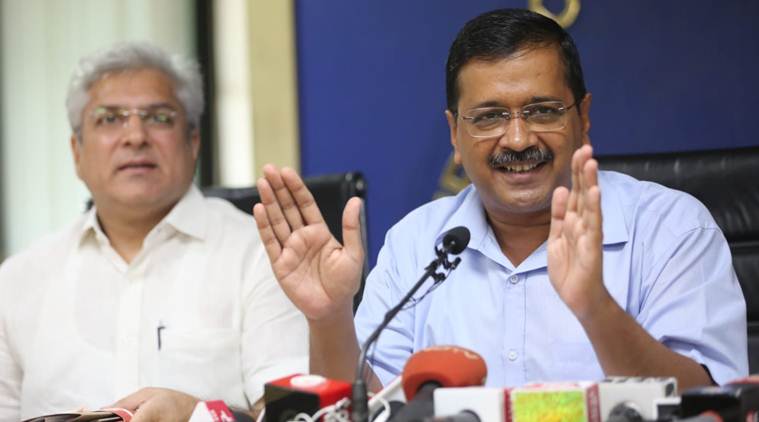Stay updated with the latest - Click here to follow us on Instagram
Delhi: ‘787 colonies will get free sewer connections under new govt scheme’
As many as 2,34,000 houses in 787 colonies are set to benefit from the Mukhyamantri Muft Sewer Connection Yojana, for which residents can apply until March 31.
 Kejriwal said the decision was taken in a cabinet meeting held Monday. (Express photo: Tashi Tobgyal/File)
Kejriwal said the decision was taken in a cabinet meeting held Monday. (Express photo: Tashi Tobgyal/File)
Free sewer connections would be provided to houses in Delhi’s colonies where sewage lines have been laid, under a new Delhi government scheme announced by Chief Minister Arvind Kejriwal Monday.
As many as 2,34,000 houses in 787 colonies are set to benefit from the Mukhyamantri Muft Sewer Connection Yojana, for which residents can apply until March 31.
Speaking at the Delhi Secretariat Monday, Kejriwal said, “Delhi government has invested thousands of crores and laid thousands of kilometres of sewer lines. But despite this, lakhs of households in the city have not installed sewer connections because of the high installation and development charges.”
Under the new scheme, consumers who apply for a connection would not have to pay development charges, connection charges or road cutting charges.
As per the government’s estimation, a 25 sq mt house would save over Rs 19,000 under the scheme and a 100 sq mt house would save more than Rs 26,000.
Kejriwal said the decision was taken in a cabinet meeting held Monday, adding that the AAP-led government had reduced development charges to Rs 100 per square metre from Rs 500 per square metre, but individual charges to install a sewer connection still “burns a hole in the pocket of a common man”.
He said he would write to the 2.34 lakh households in the city, which do not have a sewer connection yet, requesting them to apply for it.
“This will also ensure sanitation of the city as it will prevent waste from being dumped into storm water drains and the Yamuna,” he added.
A DJB official added that households that have not taken sewer connections are mainly in unauthorised colonies.
“We estimate that each household generates around 1 kilo litre of sewage per day. Through this scheme, we will be preventing discharge of around 50 million gallons of sewage per day, which either contaminates ground water or enters the Yamuna through storm water drains.”







